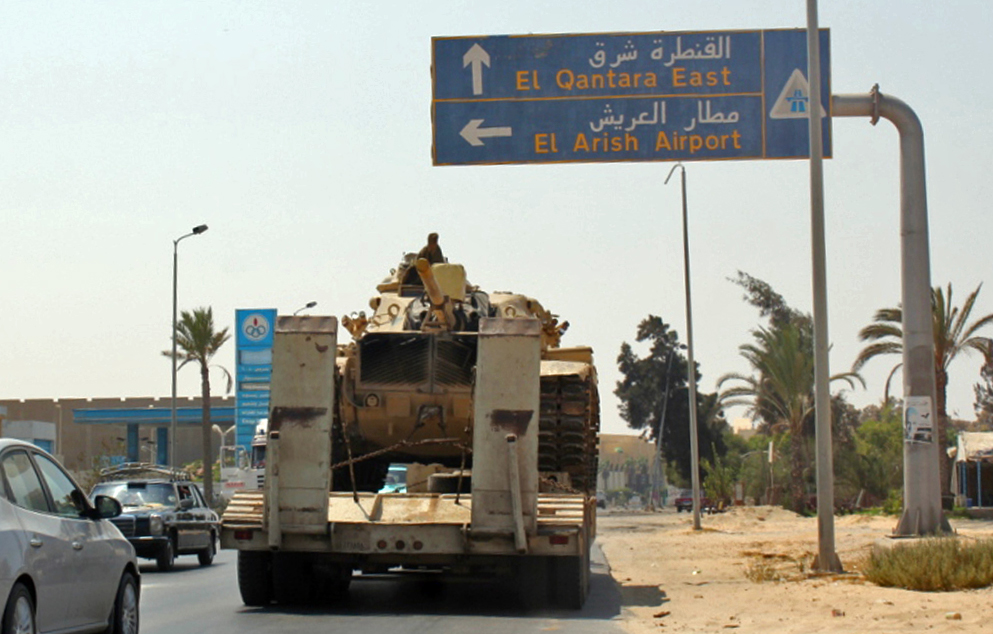Egyptian President Abdel Fattah Al-Sisi has emphasised the necessity of preserving Syria’s unity and territorial integrity. During a phone call on Tuesday with his Cypriot counterpart, Nikos Christodoulides, Al-Sisi stressed the importance of initiating a comprehensive political process that includes all components and segments of the Syrian people, according to the Egyptian presidency.
Turkish President Recep Tayyip Erdoğan also called on Tuesday for international cooperation in the reconstruction of Syria. This comes after armed factions ousted former President Bashar Al-Assad’s regime. During a meeting with the Emir of Qatar, Sheikh Tamim bin Hamad Al Thani, Erdoğan stated that “Turkey is combating terrorist organizations to protect its national security and end the state of instability in Syria as quickly as possible,” as reported by the Anadolu Agency. Turkey is currently engaged in fighting the Kurdish People’s Protection Units (YPG), which dominate the Syrian Democratic Forces, and the Kurdistan Workers’ Party (PKK), both of which Ankara considers terrorist organisations.
Bader Jamous, head of the Syrian Negotiation Commission, said on Tuesday that transitional justice in Syria is “not an option but a necessity,”. He stressed the continued pursuit of legal action against the former regime and President Bashar Al-Assad. During a UN Security Council session on Syria, Jamous added, “We believe that the spirit of Security Council Resolution 2254 constitutes a roadmap for achieving the aspirations of the Syrian people.”
He called for the establishment of “a comprehensive national transitional government that represents all segments of the people.” Jamous also emphasisedthe need to convene an inclusive national conference to select a constituent assembly tasked with drafting a new constitution, and said that, “Free and fair elections should be organised under the supervision of the United Nations after the referendum on the constitution.” The Syrian Negotiation Commission also stated on Tuesday that they discussed the need to implement Security Council Resolution 2254 with Michael Onmacht, the acting European Charge d’Affaires in Damascus.
International community weighs in on Syria
Russia’s representative to the Security Council, Vasily Nebenzya, stated on Tuesday that Israeli forces are within 20 kilometers of the Syrian capital, Damascus. During his address to the Security Council, Nebenzya added that “the de facto authorities in Syria must continue to maintain state institutions.” The Russian representative also called for the lifting of sanctions on Syria.
The UN Special Envoy to Syria, Geir Pedersen, told the Security Council on Tuesday that concrete progress towards an inclusive political transition in Syria will be critical to securing the economic support the country needs. Pedersen added,“There is a clear international willingness to engage. The needs are immense and can only be addressed through broad support, including a smooth ending to sanctions, taking appropriate action regarding the classification of (groups) as well as full reconstruction.”
Tom Fletcher, the UN Under-Secretary-General for Humanitarian Affairs and Emergency Relief Coordinator, said on Tuesday that more than 70% of the Syrian population is in need of assistance.
He noted there is “a shortage of bread, fuel, and basic supplies.” Fletcher added that “more than one million Syrians have been displaced in two weeks,” and that “the humanitarian consequences of the conflict in northeastern Syria are alarming.” Fletcher affirmed that he had “received assurances of the facilitation of humanitarian aid movement from Turkey, Lebanon, Jordan, and Iraq.”
France Re-Engages with Syria
The French Ministry of Foreign Affairs announced on Tuesday that the French diplomatic mission dispatched to Damascus had met with representatives appointed by the Syrian transitional authorities. The mission urged the Syrian authorities to commit to a non-exclusionary approach in the political transition process. The Ministry of Foreign Affairs clarified that Paris will be focused on collective security issues, particularly combating ISIS and other groups.
Additionally, the French Ministry of Foreign Affairs announced that the French flag had been raised over its embassy in the Syrian capital, Damascus, on Tuesday. The embassy had been closed for 12 years during the country’s civil war.France sent a team of diplomats to Syria to assess the political and security situation after armed opposition factions ousted Syrian President Al-Assad. The team does not intend to remain in the country, and the gesture does not signify a reopening of the embassy. France, which severed ties with al-Assad in 2012, maintains that the political transition in Syria must be credible and inclusive, aligning with a framework issued by the United Nations.


